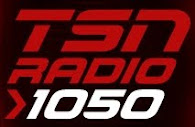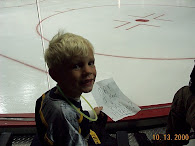Yesterday afternoon, I posted a link to Craig Custance's column in the Sporting News where he is lamenting the fact that too many veteran NHL players, like Sergei Federov, are jumping to the KHL to finish out their careers. In the story, Chris Osgood agreed that it was bad for the league to lose the older guys who act as a role model for younger non-North American transplants.
Unfortunately, this is a trend that will continue, especially in the next couple of seasons when the salary cap is projected to shrink. Teams will have to choose whether to keep young players deemed to be the future of the franchises, or hang on to older players that are in the twilight of their careers.
The Alexander Radulov situation is totally unrelated to the current phenomenon and will not be addressed here, but it was also a matter of following the available money.
The Predators are a fine example of the economics of the lessening cap. They have done a good job of signing the core of their team to multi-year contracts. Players like Weber, Suter, Legwand, Erat, Dumont and Arnot are signed for a few years to come. That leaves the remainder of the squad needing to be filled out with younger players with entry level contracts and veterans with lower salaries. Resiging Steve Sullivan or another free agent or two will also eat up available capital.
A couple of players whose contracts are expiring are Radek Bonk ($1.6 Mil) and Greg DeVris ($2.75). Given a choice of putting limited dollars into younger players or paying the veterans, there is no choice to pay the kids and let the vets move on. Neither Bonk and DeVris are prime candidates for the KHL but a players like Federov and Viktor Kozlov certainly are, on a team full of young stars that will command more money.
Teams will continue to try to lock up younger players, like the Preds will with Ryan Jones, Cal O'Reilly, and Joel Ward at the expense of letting veterans go elsewhere, including the KHL who is hungry for NHL quality players. The KHL simply can pay a certain type of player more money and if they are from Russia or other European counties, there is the side benefit of playing much closer to home.
The primary reason, the Russian and European players came to North America was money and now that it is not as plentiful, they will return to the home country to end their career for the same reason. Chris Osgood can lament all he wants, but under the current economic structure of the league something has to give and Federov, Kozlov and others in the same boat are simply following the available money. You can't blame them for that.
Buddy Oakes for PredsOntheGlass
Subscribe to:
Post Comments (Atom)




















No comments:
Post a Comment